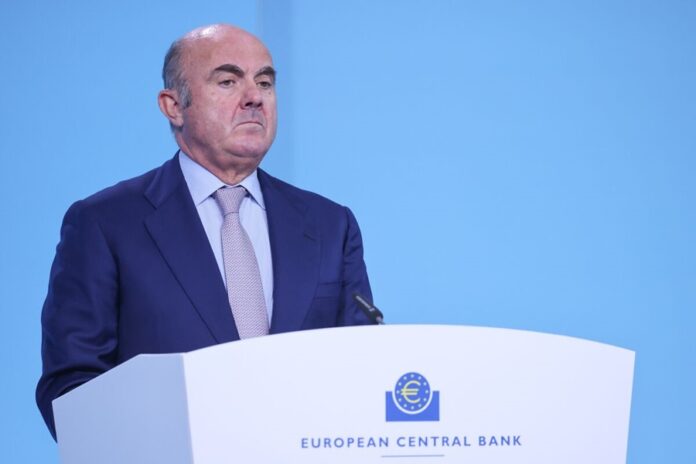The European Central Bank requires additional evidence that inflation is returning to its goal before it can safely begin loosening monetary policy, according to Vice President Luis de Guindos, according to Bloomberg.
Officials in Frankfurt must maintain a close watch over risk factors that could still reignite price gains, Guindos said Wednesday in a speech, listing rapid wage growth, elevated corporate profit margins and geopolitical tensions.
“While we are heading in the right direction, we must not get ahead of ourselves,” he told an event in Split, Croatia. “It will take some more time before we have the necessary information to confirm that inflation is sustainably returning to our 2% target.”
ECB officials are assessing when they can start lowering borrowing costs after unleashing the most aggressive hiking campaign since the introduction of the euro. While in retreat, prices face upside risks across the world, with data Wednesday from the US illustrating the lingering dangers.
“The next few months will be especially rich in new information on drivers of underlying inflation as we receive data on latest wage settlements and price re-setting by firms,” Guindos said. “We will also have the benefit of new projections in March.”
He warned, though, that there’s still large uncertainty around the ECB’s quarterly forecasts, meaning it’s essential to look at them “alongside incoming data.”
Guindos’s cautious optimism on inflation and call for patience were echoed by two of his colleagues, speaking at the same event.
“We seem to be getting it right as inflation is coming down — hopefully in a sustainable manner toward our medium-term target,” Croatian central bank Governor Boris Vujcic said.
Spain’s Pablo Hernandez de Cos, meanwhile, said the ECB is “waiting for more information in the coming weeks and months in order to be sure that the disinflationary process is solid before we start loosening our policy.”
De Cos also warned about “very, very significant” medium-term challenges for the region’s economies. Guindos, too, said “potential growth is very likely to slow down in the future.”
In the near term, “incoming data continue to signal weakness,” Guindos said.
Indeed, the euro zone is struggling to grow at present as it’s biggest member, Germany, endures a manufacturing downturn. Analysts expect data later Wednesday to confirm that output in the 20-nation bloc stagnated in the fourth quarter — an assessment Guindos agreed with.


